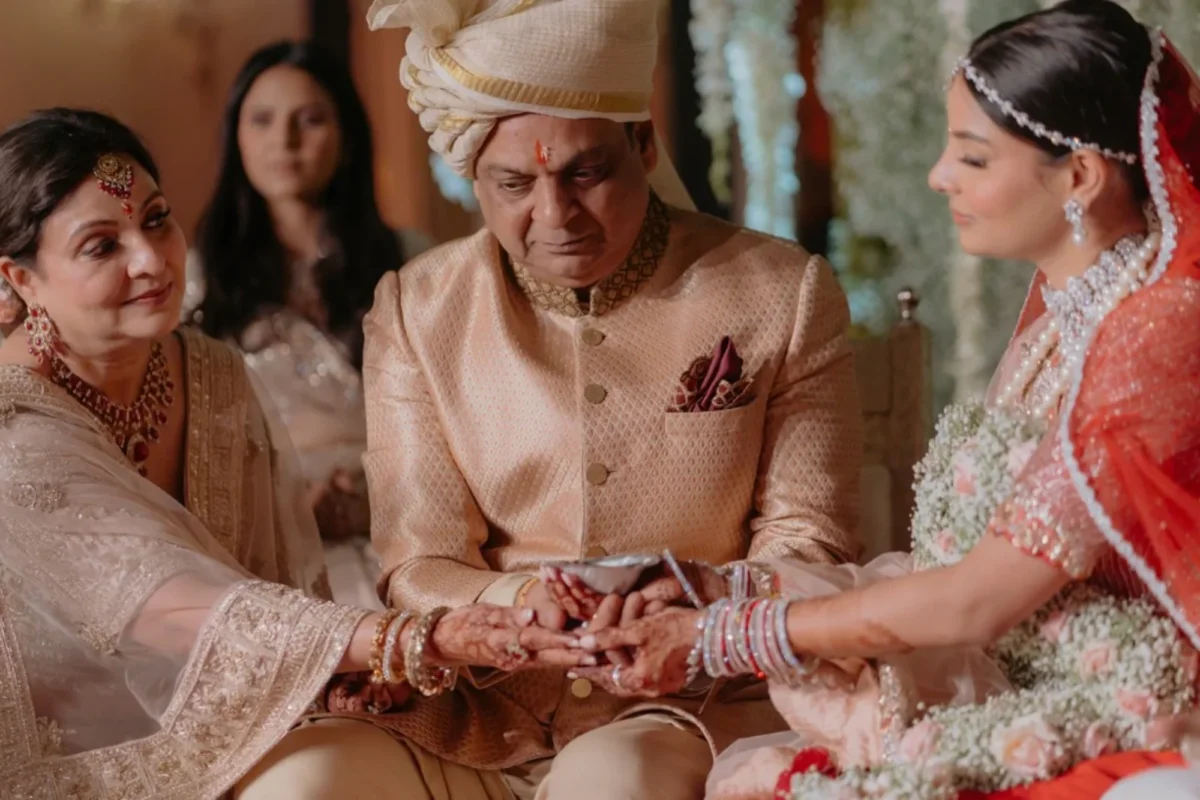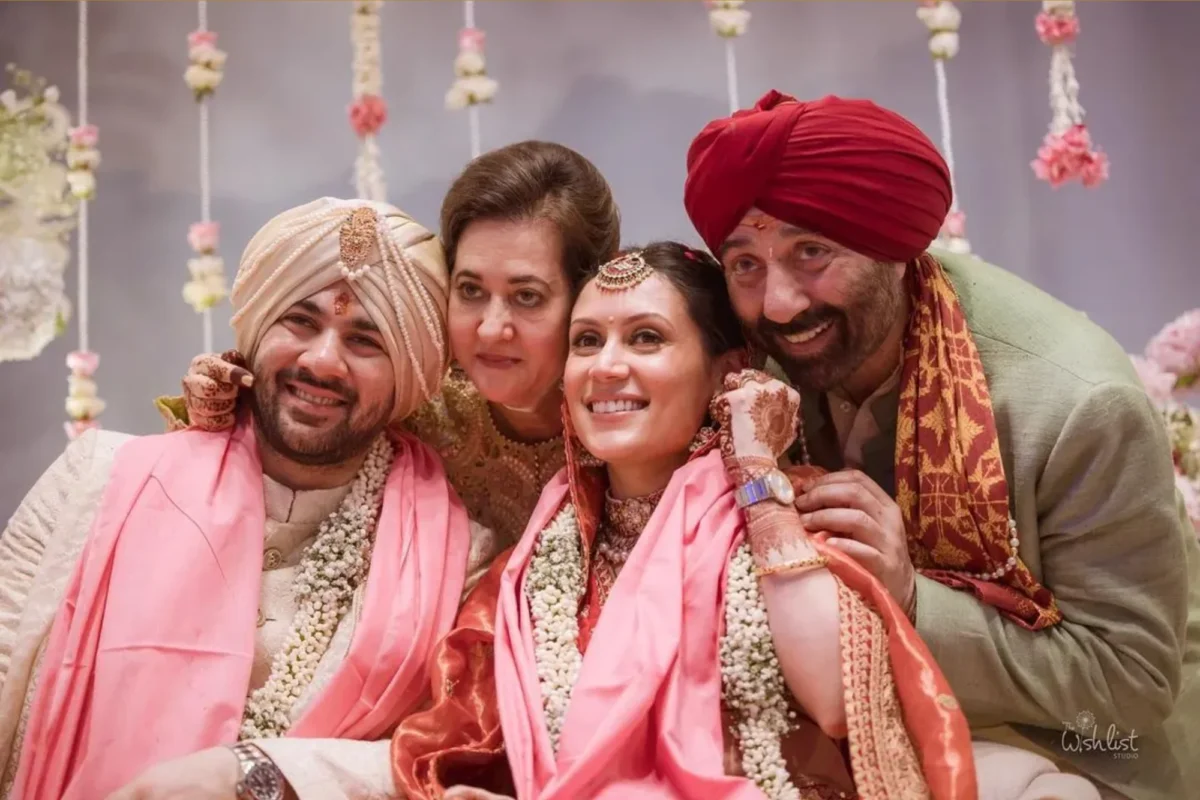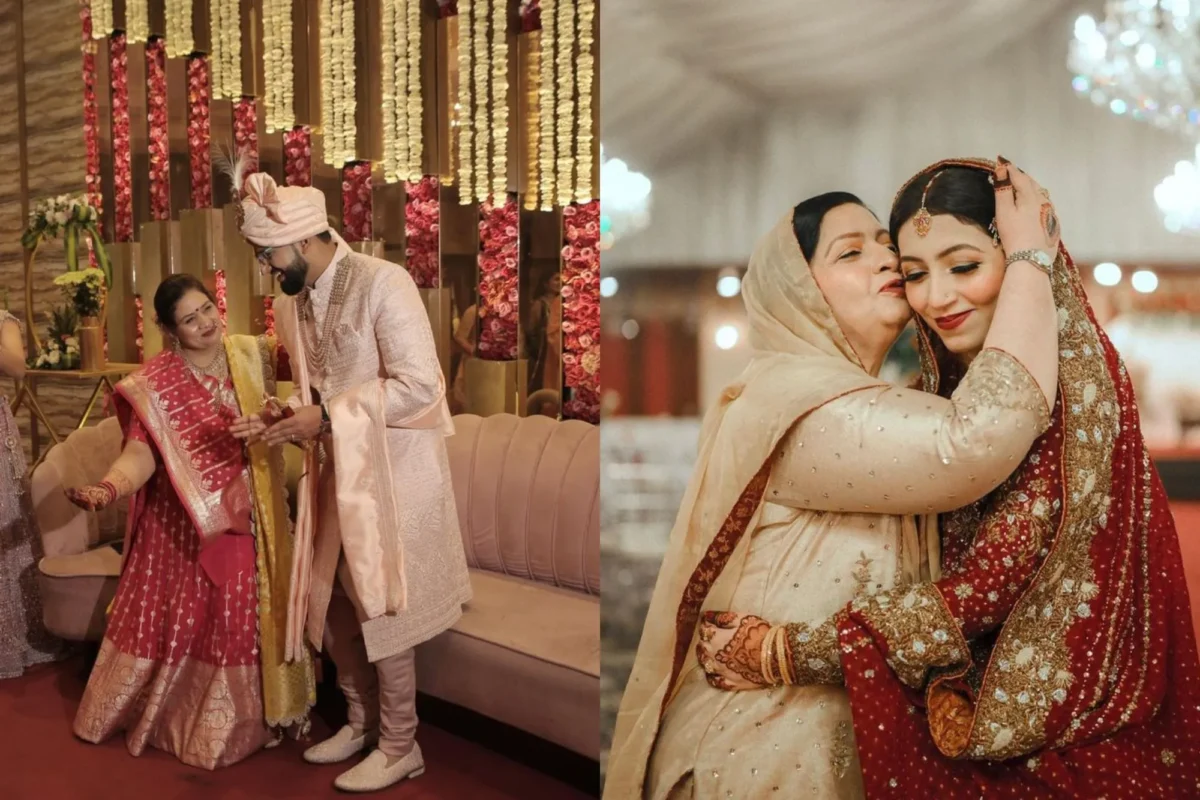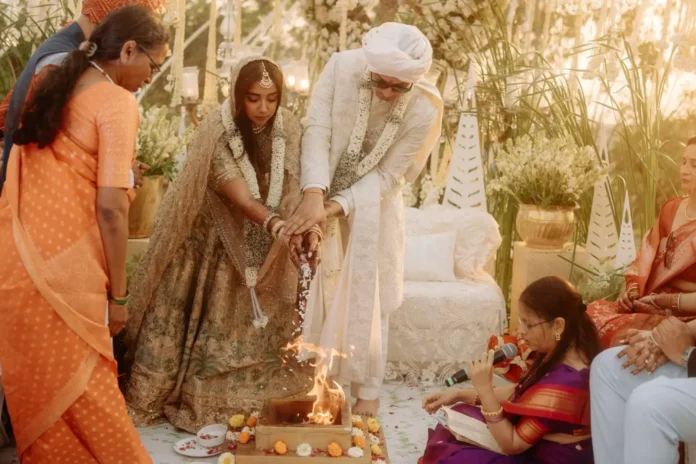Hindu weddings are grand celebrations where ancient traditions combine with modern festivities, and the pivot point of all these rituals is the parents of both the bride and groom.
Understanding the role of parents in Hindu weddings is highly important for anyone planning this sacred union, as their involvement extends far beyond that of a mere spectator. They are key participants in every ritual and ceremony.
In Hindu culture, marriage is not between two persons but involves the amalgamation of two families. Parents play a significant role in their children’s Hindu marriage, and mothers and fathers have important roles in such ceremonies that have been passed down for generations. Their involvement reflects blessings, continuity of family lineage, and the transfer of responsibilities from one generation to another.
Table of Contents:
-
Roles of the Bride’s Parents in Hindu Weddings
-
Roles of the Groom’s Parents in Hindu Weddings
-
Various Responsibilities Shared in Common by Both Sets of Parents
-
Parents’ Emotional Journey
Roles of the Bride’s Parents in Hindu Weddings

Before the Wedding
The bride’s family traditionally assumes the role of host, for the wedding usually takes place at the bride’s residence or in a venue arranged by her family. Their role starts much in advance of the actual date of marriage with the Roka ceremony, where the two families formally agree to the marriage of their children. The bride’s father also prepares the Kanya Daan ritual, which is one of the most important rituals to be performed by him.
Equally important is the participation of the bride’s mother in the pre-wedding preparations. She has to oversee the Mehendi ceremony, ensure that the bride’s trousseau is complete, and extend emotional support during this transitional period. The parents and Hindu wedding planning involve liaison with priests, selection of auspicious dates, and management of the guest list.
During the Wedding Ceremony
The most emotional moment for the bride’s parents is the giving away of the daughter, known as Kanya Daan. The bride’s father places his daughter’s hand in the groom’s hand, symbolising the transfer of responsibility. This is performed with mantras and signifies the trust that the father is bestowing on the bridegroom for the safekeeping of his daughter. The bride’s mother then sits beside them, offering prayers and blessings.
During Saptapadi or the seven sacred steps, both parents are witnesses while the couple goes around the sacred fire to take seven vows. The bride’s mother helps her daughter during various rituals, adjusting her saree to make sure she is comfortable throughout the long ceremonies.
The bride’s parents then participate in the Vidaai ceremony, which is the emotional farewell as the bride is to leave the parental abode. This moment marks the end of their main responsibility in bringing up the girl child and preparing her for married life.
Read Also: Milk Skincare: 10 Milk-Based Products You Need to Try
Roles of the Groom’s Parents in Hindu Weddings

Before the Wedding
The events at the groom’s house begin with the Tilak ceremony, where the bride’s family comes to the groom’s house to formally accept the groom. His mother ceremoniously puts a tilak on the groom’s forehead to bless him before the wedding.
The wedding procession, known as Baraat, is led by the groom’s family, accompanying him to the wedding venue with music and lots of dancing. His mother also has the special role of getting her son ready for this journey, where the ceremonial headpiece of the groom is tied, a ritual known as Sehra Bandi.
During the Wedding Ceremony
When the groom reaches the wedding venue, the bride’s mother prepares Var Mala, a part of the ceremony, and performs Aarti for him as a sign of welcome. Parents of the groom stand by him and bless him during important rituals. The Madhuperk ceremony, wherein the mother of the groom offers him honey along with other items of auspiciousness before he enters the wedding mandap. This is an ancient ritual, spiritually preparing the groom for the sacred wedding ceremony.
The bridegroom’s parents witness their son promising eternally to his bride as he performs Phere, or the circumambulation around the sacred fire. They actively participate in many of the rituals, joining in the prayers for a prosperous future.
After the Wedding
The groom’s parents are responsible for the Griha Pravesh, welcoming the bride into her new home. The groom’s mother does an aarti and traditionally asks the bride to tip over a kalash filled with rice with her right foot to symbolize the entry of prosperity into the home. This is a ceremony to mark the beginning of the bride’s new life being a part of their family.
Various Responsibilities Shared in Common by Both Sets of Parents

Parents and Hindu wedding festivities involve the cooperation of both families in many aspects. Together, they participate in the Sangeet ceremony: a joyful pre-wedding celebration of music, dancing, and performances. It allows them to get together and get to know each other as one big family in preparation for the union of their children.
The Haldi ceremony involves an application of a turmeric paste on the bride and groom in their respective homes by parents from both sides, a ritual thought to bless the couple and give them a natural glow before the wedding.
Traditionally, the financial responsibilities are shared according to customs and modern agreements. Although traditionally the bride’s family bore most of the expenses, many contemporary Hindu weddings often share the wedding expenses equally or by capability and mutual understanding of both families.
Parents’ Emotional Journey
More than the rituals and ceremonies, parents’ and Hindu wedding experiences are emotional. For the bride’s parents, this is a bittersweet moment of pride mixed with the sadness of their daughter leaving home. The groom’s parents go into raptures, having welcomed a new family member into the fold while taking up the added responsibility of supporting a new couple.
Hindu philosophy dictates that through a marriage between children, parents fulfill one of their biggest life duties: Kanyadaan for the bride’s parents, and providing a stable family foundation for the groom’s parents.
Read Also: Wedding After Party Ideas That Keep The Celebration Alive
Frequently Asked Questions
Q1: What is the most important duty of the bride’s father in a Hindu wedding?
Most importantly, there is Kanya Daan, the ritual of giving away the daughter, considered one of the greatest acts of charity according to Hindu tradition, and a sign of the father’s trust in the groom.
Q2: Can divorced parents participate equally in Hindu wedding ceremonies?
Yes, divorced parents can both participate in ceremonies. Many families make accommodation for both parents to be present during key rituals, and priests can adapt ceremonies to accommodate different family structures while maintaining traditional sanctity.
Q3: What is the mother of the groom’s position within Hindu weddings?
The mother of the groom performs various significant rituals, including Sehra Bandi. She welcomes the bride at the time of Griha Pravesh by performing aarti and offering blessings throughout the ceremony. She’s essential in helping the bride transition into her new family.
Q4: Are parents supposed to bear the entire cost of a Hindu wedding?
Traditionally, the bride’s family in most cases bore most expenses, but modern families often share costs. No specific rule exists, and it is mostly decided in mutual discussions based on the capabilities and preferences of both families.
Q5: What if due to health or any other issue, parents cannot attend the wedding?
Such occasions permit near relatives like uncles, aunts, or elder siblings to stand in for the parents to conduct whatever is required. The Hindu traditions are flexible and put spiritual intention above physical presence when conditions do not allow it.






